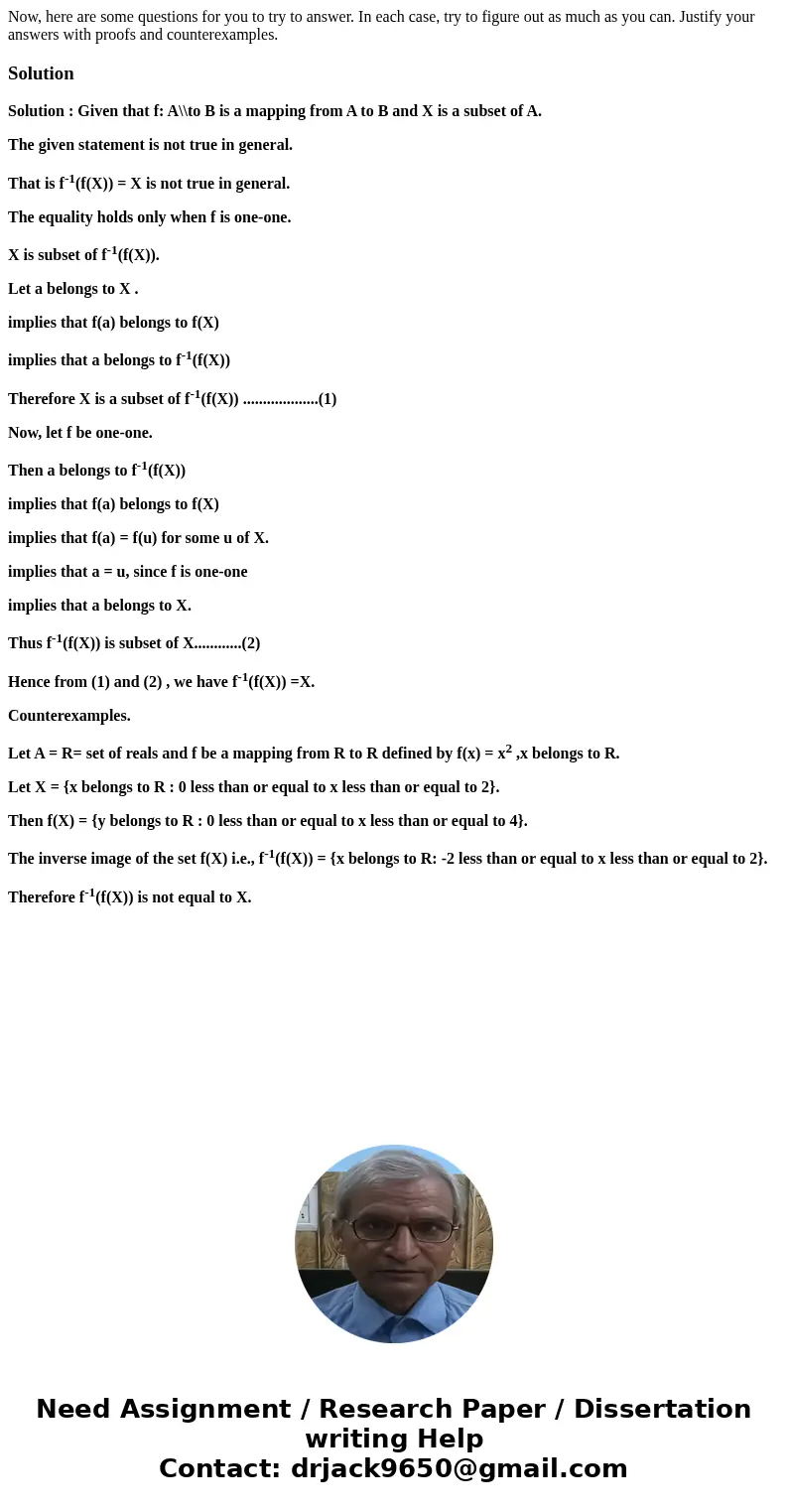Now here are some questions for you to try to answer In each
Now, here are some questions for you to try to answer. In each case, try to figure out as much as you can. Justify your answers with proofs and counterexamples.
Solution
Solution : Given that f: A\\to B is a mapping from A to B and X is a subset of A.
The given statement is not true in general.
That is f-1(f(X)) = X is not true in general.
The equality holds only when f is one-one.
X is subset of f-1(f(X)).
Let a belongs to X .
implies that f(a) belongs to f(X)
implies that a belongs to f-1(f(X))
Therefore X is a subset of f-1(f(X)) ...................(1)
Now, let f be one-one.
Then a belongs to f-1(f(X))
implies that f(a) belongs to f(X)
implies that f(a) = f(u) for some u of X.
implies that a = u, since f is one-one
implies that a belongs to X.
Thus f-1(f(X)) is subset of X............(2)
Hence from (1) and (2) , we have f-1(f(X)) =X.
Counterexamples.
Let A = R= set of reals and f be a mapping from R to R defined by f(x) = x2 ,x belongs to R.
Let X = {x belongs to R : 0 less than or equal to x less than or equal to 2}.
Then f(X) = {y belongs to R : 0 less than or equal to x less than or equal to 4}.
The inverse image of the set f(X) i.e., f-1(f(X)) = {x belongs to R: -2 less than or equal to x less than or equal to 2}.
Therefore f-1(f(X)) is not equal to X.

 Homework Sourse
Homework Sourse